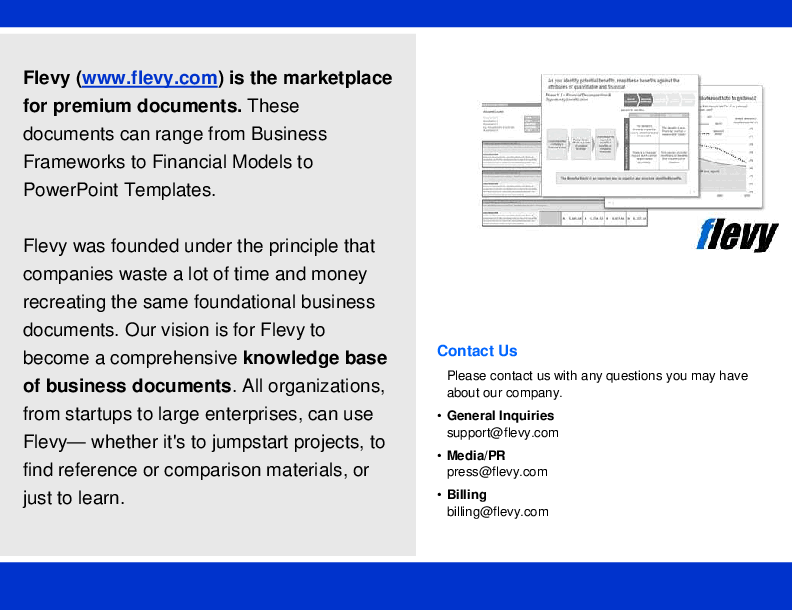Module Dependency Matrix Template (Excel XLSX)
Excel (XLSX)
EXCEL DESCRIPTION
Requirements engineering is a process of gathering and defining of what the services should be provided by the system. It is a common role in systems engineering and software engineering.
It focuses on assessing if the system is useful to the business (feasibility study), discovering requirements (elicitation and analysis), converting these requirements into some standard format (specification), and checking that the requirements define the system that the customer wants (validation).
This document is the work of Adaptive US Inc. It is the World's most innovative business analysis solutions organization which has successfully conducted 300+ BA workshops and has served 200+ top-notch clients including Wells-Fargo Bank, Credit Suisse, HP, CGI, AXA, AkzoNobel, Ness, Unisys, etc. We are proud to have a 100% key client retention rate.
Requirements Engineering Process consists of the following main activities:
1. Requirements elicitation: It is related to the various ways used to gain knowledge about the project domain and requirements. The various sources of domain knowledge include customers, business manuals, the existing software of the same type, standards, and other stakeholders of the project.
2. Requirements specification: This activity is used to produce formal software requirement models. All the requirements including the functional as well as the non-functional requirements and the constraints are specified by these models in totality. During specification, more knowledge about the problem may be required which can again trigger the elicitation process.
3. Requirements verification and validation:
? Verification: It refers to the set of tasks that ensures that the software correctly implements a specific function.
? Validation: It refers to a different set of tasks that ensures that the software that has been built is traceable to customer requirements.
If requirements are not validated, errors in the requirement definitions would propagate to the successive stages resulting in a lot of modification and rework.
4. Requirements management: Requirement management is the process of analyzing, documenting, tracking, prioritizing, and agreeing on the requirement and controlling the communication to relevant stakeholders. This stage takes care of the changing nature of requirements. It should be ensured that the SRS is as modifiable as possible to incorporate changes in requirements specified by the end-users at later stages too. Being able to modify the software as per requirements in a systematic and controlled manner is an extremely important part of the requirements engineering process.
Got a question about the product? Email us at support@flevy.com or ask the author directly by using the "Ask the Author a Question" form. If you cannot view the preview above this document description, go here to view the large preview instead.
Source: Module Dependency Matrix Template Excel (XLSX) Spreadsheet, Adaptive US Inc.






